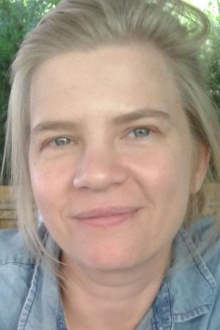The genetic history of Africa based on modern and ancient DNA

Carina SCHLEBUSCH
Uppsala University, Human Evolution Programme, Sweeden, carina.schlebusch@ebc.uu.se
(Seminar in English)
In the last few decades, genetics played an increasingly important role in exploring human history. Genetic studies provided conclusive information that helped to answer challenging questions, such as the "Out of Africa" migration of modern humans. Moreover, genetics helped to establish Africa as the birthplace of anatomically modern humans. The history of human populations in Africa is complex and includes various demographic events that influenced patterns of genetic variation across the continent. Several studies based on mitochondrial DNA, Y-chromosomes, autosomal markers and whole genomes contributed to unraveling the genetic sub-structure of African populations. Through these studies, it became evident deep African history is captured by connections among African hunter-gatherers, and that the deepest population divergence date to around 300,000 years before present. Furthermore, it was shown that agriculture had a large influence on the distribution of current-day Africans and that West African agriculturist populations populated the whole of sub-Saharan Africa, replacing and/or assimilating former groups. Other farming groups from Northeast Africa, admixed with Middle Eastern populations and also expanded southwards. These later population movements disrupted pre-existing population distributions and complicate inferences regarding deep human history. With the increased availability of full genomic data from diverse African populations we have more power to infer human demography. Furthermore, the first successful African ancient DNA genomes allow for direct temporal comparisons. With the promise of many more African modern and ancient genomes to come, the next few years will be exciting for investigating our species deep genetic history, rooted in Africa.
Related publications:
Schlebusch CM, Skoglund P, Sjödin P, Gattepaille LM, Hernandez D, Jay F, et al, & Jakobsson M (2012) Genomic variation in seven Khoe-San groups reveals adaptation and complex African history. Science, vol 338(6105), p374-379.
Schlebusch CM, Malmström H, Günther T, Sjödin P, Coutinho A, Edlund H, Munters AR, Steyn M, Soodyall H, Lombard M, Jakobsson M. Ancient genomes from southern Africa pushes modern human divergence beyond 260,000 years ago. bioRxiv. 2017 Jan 1:145409.


